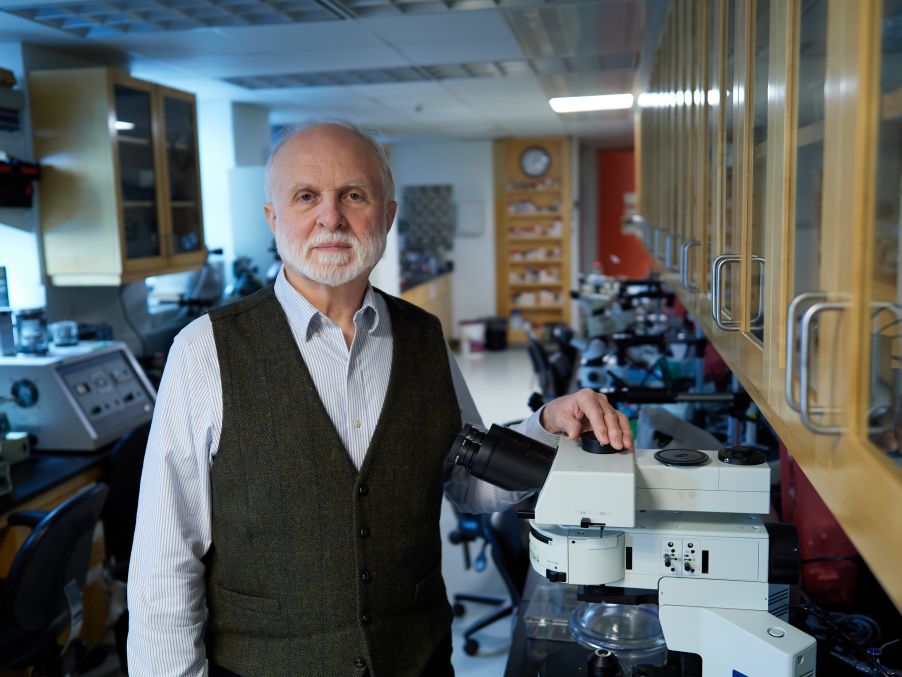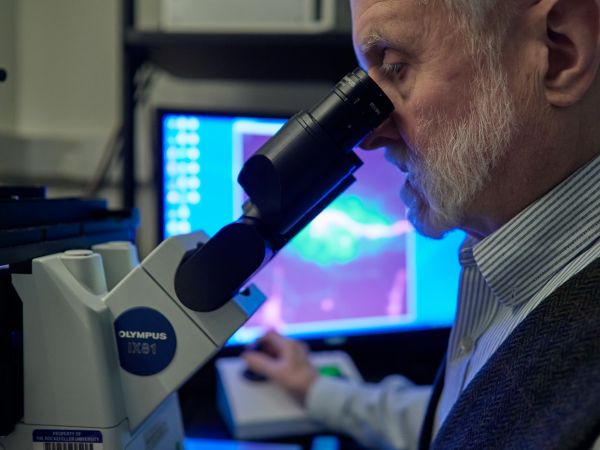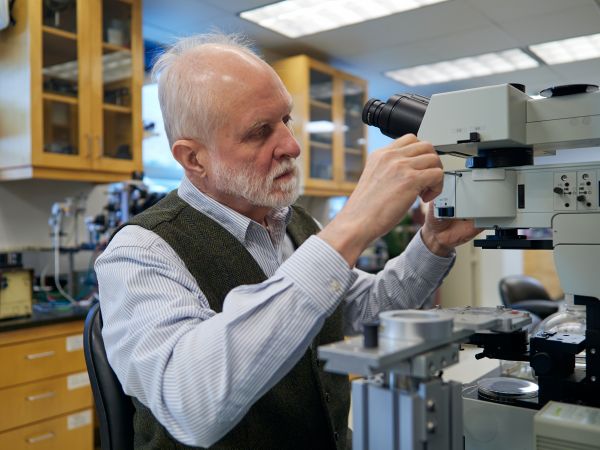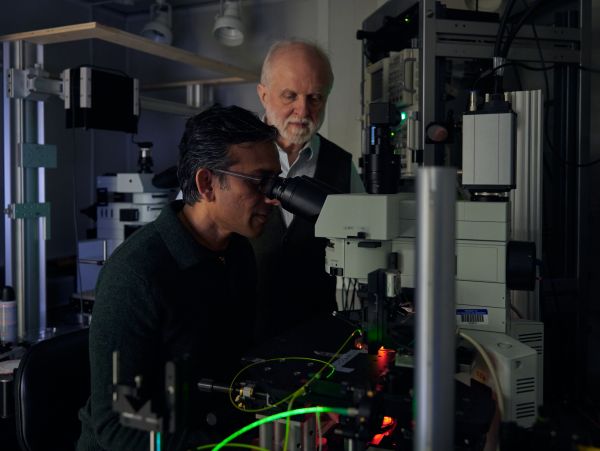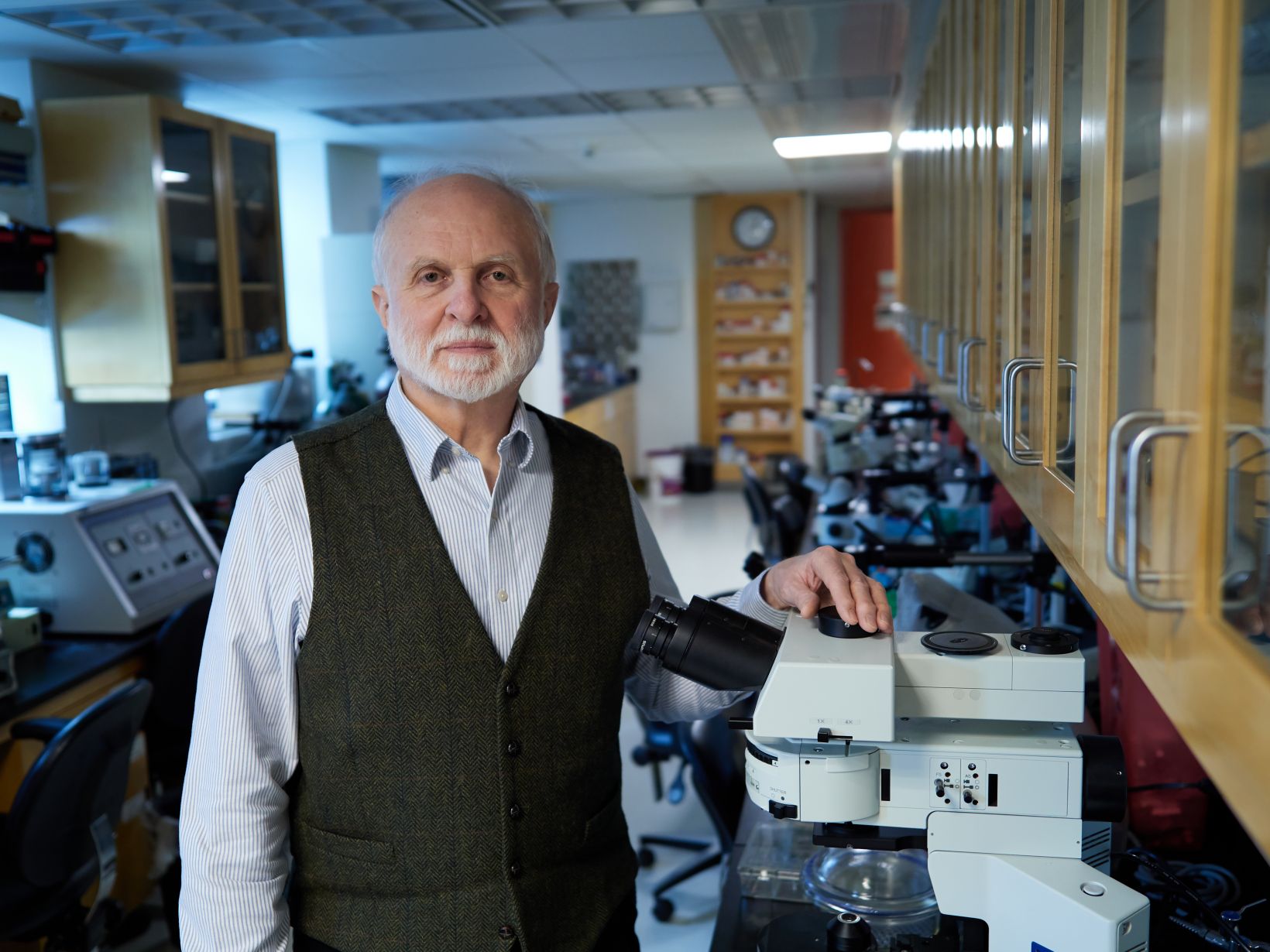Most hearing loss is caused by damaged sensory hair cells that reside within our inner ear. Learning how these cells work and determining if they can be regenerated may be the key to reversing deafness.
James Hudspeth, MD, PhD, has made it his life’s work to study and understand hearing at a molecular level. His main focus is the development and operation of the hair cells that serve as the inner ear’s sensory receptors. These hair cells don’t naturally regenerate, so their disappearance can mean hearing decline and loss.
Discovering a way to regenerate these hair cells—and thus restore hearing in those who are experiencing hearing loss—is the ultimate goal of his work.
“Fundamentally, the motivation for what we do is that there are 30 million people in the United States who have significant hearing problems. That’s 10% of us, and we all know someone in that category,” said James. “Worldwide, it is estimated that 450 million people have hearing problems, and that’s probably a low estimate. So, it’s an enormous issue.”
Studying Hair Cells at High Magnification Using Microscopes
Most work conducted by James and his team at the Laboratory of Sensory Neuroscience at The Rockefeller University in New York City involves stimulating, observing, and analyzing hair cells at high magnification. James and his staff currently have 10 Olympus microscopes in full-time use.
“We started using Olympus microscopes 25 years ago, and we have continued to do so for two main reasons,” said James. “First, the microscope quality is very high—the instruments, the lenses, and all of the parts are of excellent fabrication. Second, and probably more importantly, Olympus personnel are always willing to listen to us about our need for specialized products and to make modifications available that allow us to better perform our work.”
“If we’re trying to achieve a certain thing, and we want to know how we can do it, Olympus is there to answer our questions,” said James.
Understanding the Mutated Genes that Can Lead to Hearing Loss
There are more than 200 different genes that, when mutated, can cause hearing loss. James’ team, and many other similar groups, use microscopy to try and understand these mutations by observing cells that were damaged and determining how the damage occurred.
This research leads to developmental studies.
“We have screened 80,000 compounds, seeking those that might serve as potential agents to regrow hair cells,” explained James. “We have found six that look plausible, and one that has shown to be very effective in causing replication of supporting cells (cells that turn into hair cells). We are now working with a biotech company to turn this compound into a drug that could eventually be used on humans.”
“Our long-term mission is to help people who are losing their hearing or have lost their hearing to hear again,” said James.
Related Content
On the Road to a Breakthrough—Trailblazing Bioimaging Is Transforming Cancer Research
Collaboration across Borders: Medical Centers Join Forces to Advance Cancer Research
A Century of Creation—The Story of Our Life Science Imaging Systems
